Adventist University in Argentina Opens New Creation Center
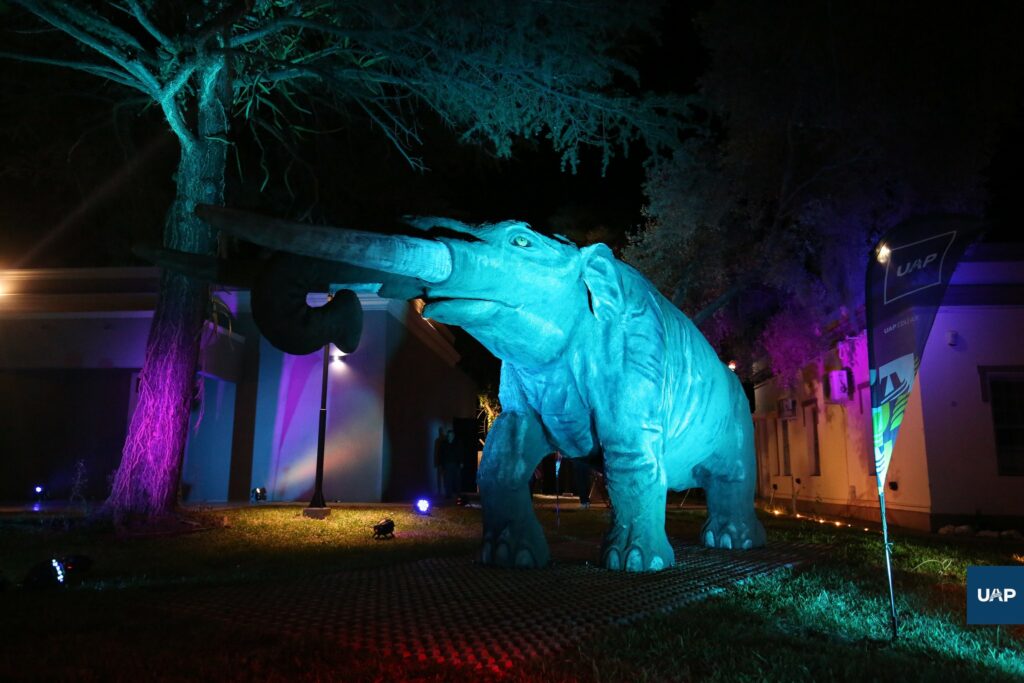
Partial night view outside the entrance of the new Creation Research Center at River Plate Adventist University in Entre Rios, Argentina. [Photo: River Plate Adventist University]
Facilities include a museum and a laboratory and geoscience research classroom.
March 5, 2023 | Argentina | Marcos Paseggi, Adventist Review
A new resource center will officially open on the campus of River Plate Adventist University (RPAU) in Argentina in March 2023. The new venue will house a museum and a laboratory and geoscience research classroom.
Geoscience Research Institute leaders and school officials held a ceremony and preview of the facilities in late 2022. During the event, leaders shared a brief outline of the project, including its physical plant specifications and goals.
Special guests at the ceremony included General Conference Geoscience Research Institute (GRI) director Ronald Nalin, South American Division GRI director Marcos Natal, and paleontologist and former RPAU GRI director Roberto Biaggi. RPAU leaders also attended the ceremony.
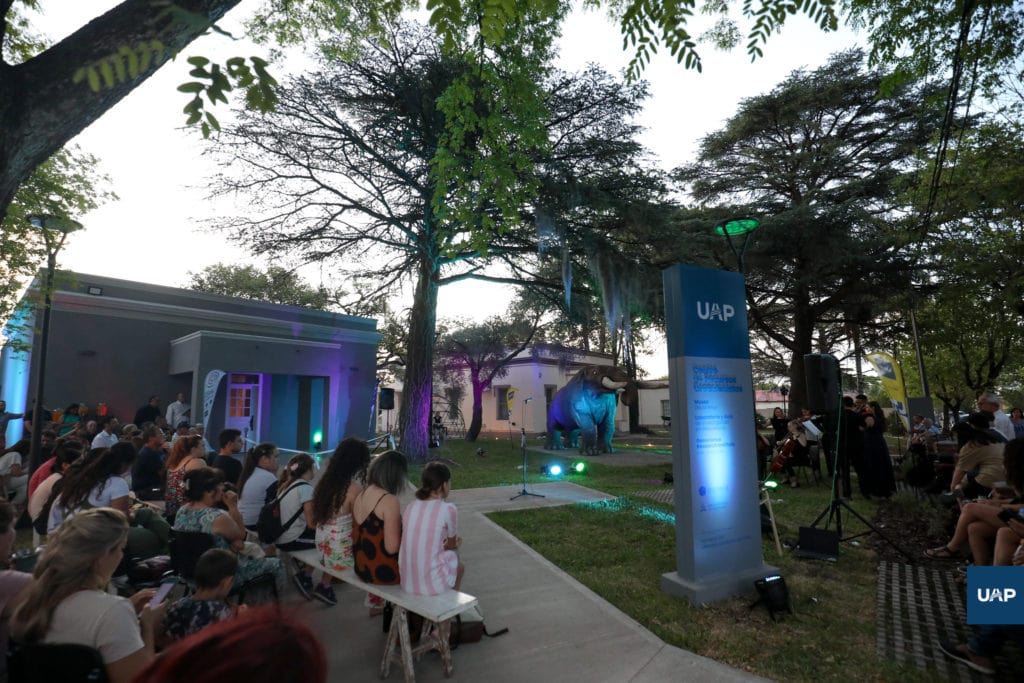
Leaders and guests attended the late-afternoon opening ceremony of the new River Plate Adventist University Creation Resource Center. [Photo: River Plate Adventist University]
Natal agreed. “I thank the Lord for being able to witness this moment. This kind of project is extremely important for the Adventist Church’s mission and the identity of its members as God’s people,” he said.
Nalin also shared his joy at participating in the ceremony and emphasized its significance. “This is another example of education within a framework of the connections between science and faith,” he said. The new RPAU GRI director is Samuel Abdala, who previously worked on projects at the GRI headquarters in Loma Linda, California, United States.
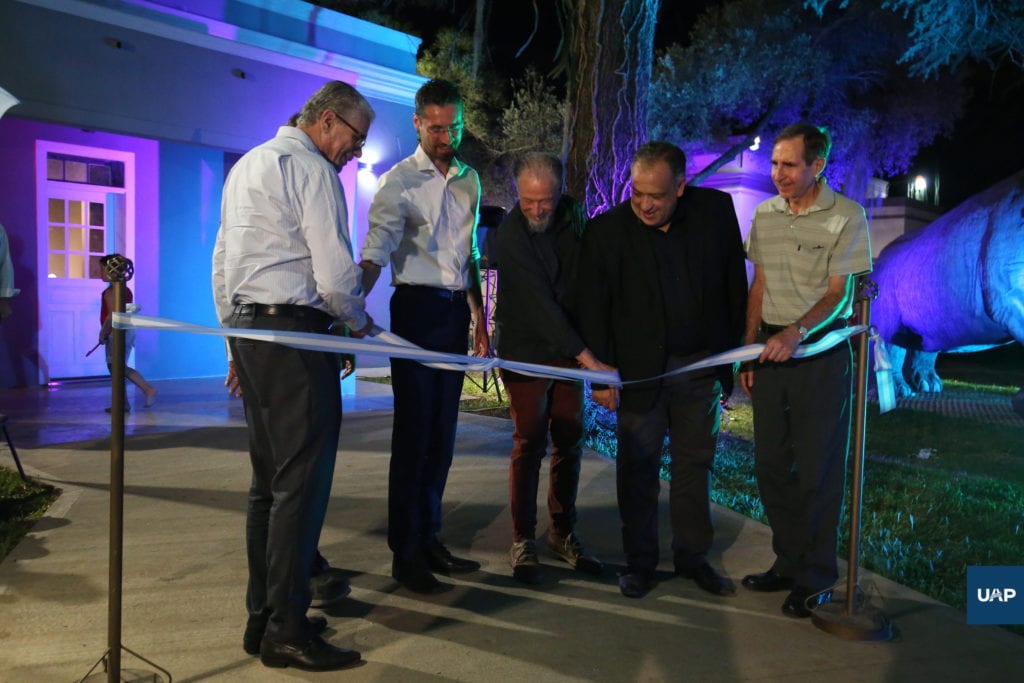
Church leaders and school officials participate in the ribbon-cutting ceremony of the new center. [Photo: River Plate Adventist University]
“This center has two people groups in mind especially,” Nalin said in an interview on the sidelines of the ceremony. “First, students, who often arrive at this higher education institution without knowing enough about earth origins. This place will provide them with the knowledge, the didactic and educational tools, that will help them to find valuable answers to their questions,” he said.
The second group, Nalin emphasized, is the general public. “Undoubtedly, this center will generate a network of connections with other educational institutions in the area who will visit the center,” he said. “It will also draw researchers with geological or paleontological knowledge, who will be able to contribute to the discussions. Interactions such as these are usually very productive.”
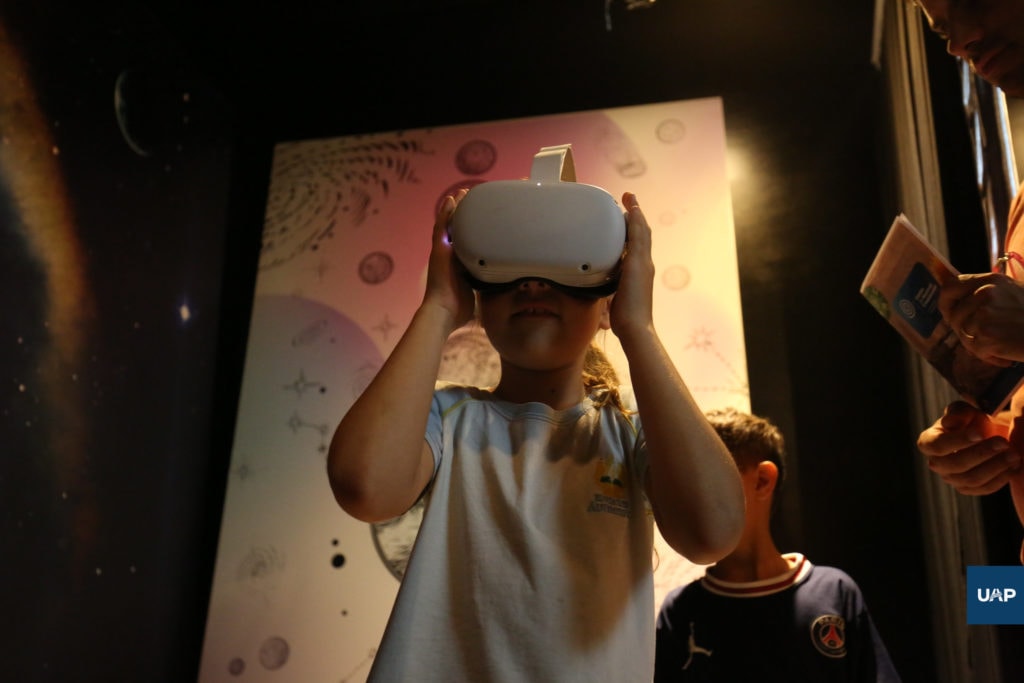
Guests of all ages enjoyed the exclusive preview of the Creation Resource Center in Argentina in late 2022. The facilities will officially open in March 2023. [Photo: River Plate Adventist University]
Beyond the scientific approach to the center, Rizzo emphasized, “one of the stated objectives of the new center is to acknowledge God’s creative hand in everything and admire the bountiful evidence found in our region.”
The new center will include the David Rhys Museum and the Geoscience Research Laboratory and Classroom, and it will serve as the branch office of Geoscience Research Institute at RPAU.
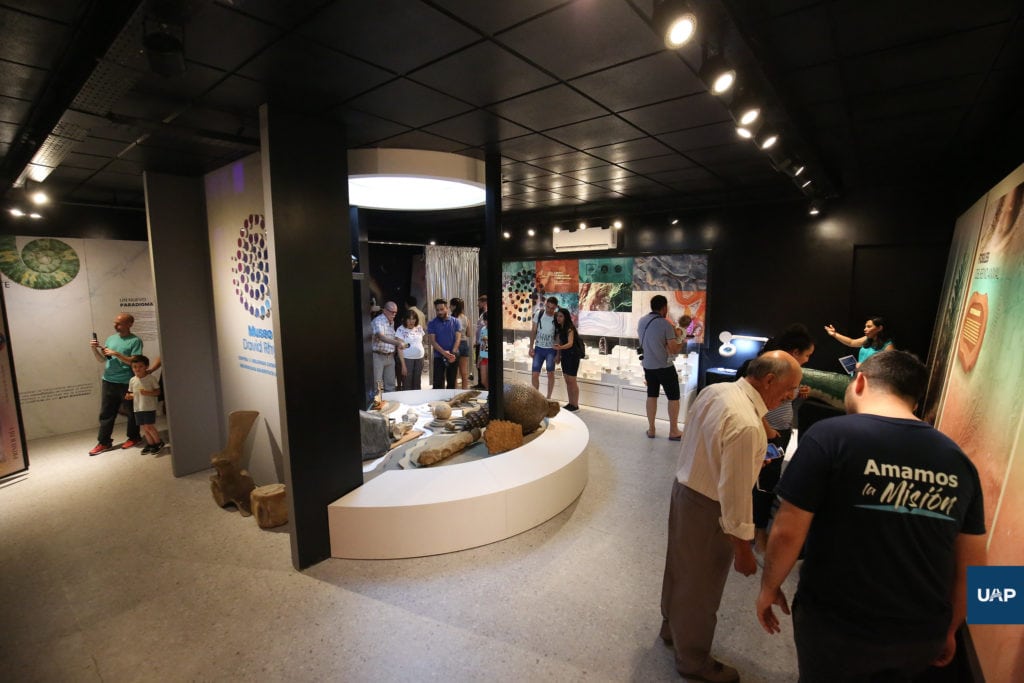
Visitors walk through the museum exhibits of the River Plate Adventist University Creation Resource Center for the first time. [Photo: River Plate Adventist University]
The Geoscience Research Laboratory and Classroom, on the other hand, will help students to learn more about topics related to biodiversity and the earth sciences. It anticipates fostering the study of species of reptiles, amphibians, preserved birds and mammals, invertebrates, vertebrates and fossils, and rocks and minerals coming from the local area and other regions of Argentina, Brazil, and Uruguay.
The new Creation Resource Center is part of a network of university-based centers in the Adventist educational system. The GRI was created with the mission of discovering and sharing an understanding of nature and its relationship to the biblical revelation of God as the Creator.
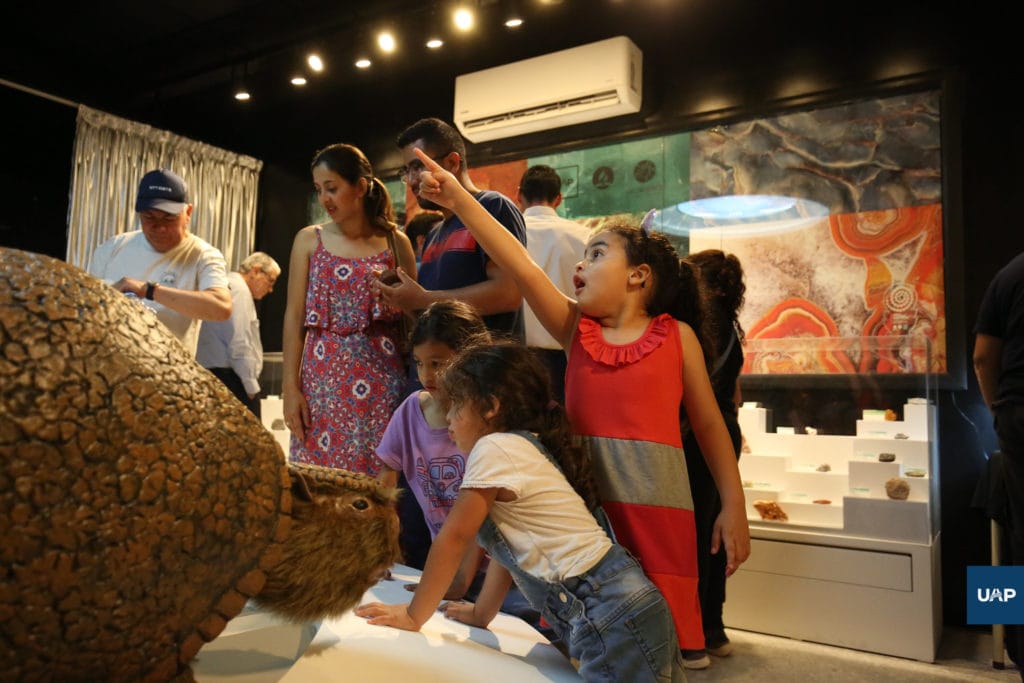
Museum exhibition includes child-friendly resources. [Photo: River Plate Adventist University]